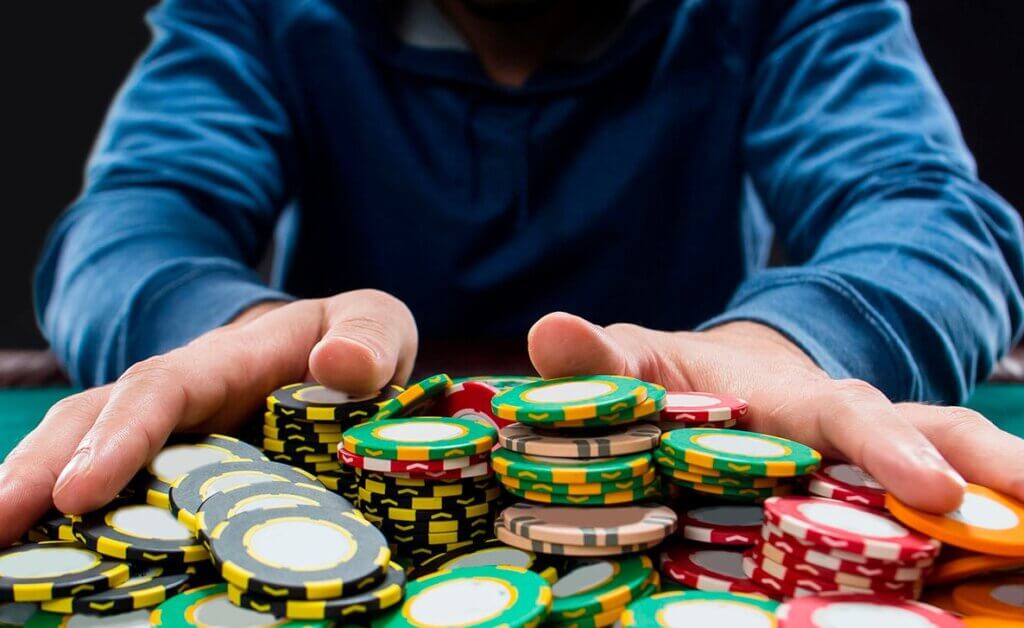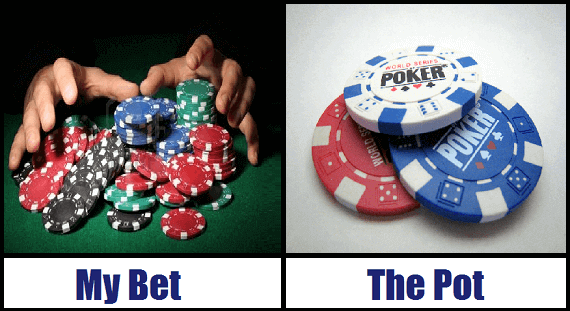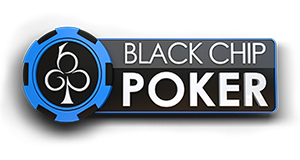Poker coach John “WhatA287” Bradley explains what overbetting is and how to overbet like a boss in poker in our latest poker strategy article.

Overbetting is a technique that can be used to deceive your opponents and win big pots, but it can also be a risky move that can cost players their entire stack.
In this article, we will explore what overbetting is, how it works, and when to use it.
What is Overbetting in Poker?
Overbetting in poker is a betting strategy where a player places a bet that is larger than the size of the pot.
It is a high-risk, high-reward technique used to create pressure on the opponent, induce them to fold or to win big pots.
Overbetting can be used to bluff opponents, extract maximum value from their weaker hands, manipulate the size of the pot, and control the action of the hand.
However, it should be used sparingly and only in specific situations where it can be most effective.
When to Overbet in Poker?
Overbetting is not a technique that should be used all the time. It should be reserved for specific situations where it can be most effective.
Here are some scenarios where overbetting can be used to great effect:
When You Have a Strong Hand
If you have a strong hand, overbetting can be used to extract maximum value from your opponent.
When you bet more than the size of the pot, your opponent may assume that you have a weak hand and will call your bet.
The reason for this is that, the larger your betsize, the less hands are plausible, as you would bet more marginal hands for a smaller size.
You can appear polarised and thus can gain some light calls.
When You Have a Bluff
Overbetting can also be used when you have a bluff.
If you have a weak hand and want to get your opponent to fold, overbetting can create the impression that you have a strong hand.
To many opponents, a large betsize can show great strength as you would certainly want to grow the pot as big as possible with your best quality hands.
Many players will fear calling a large bet and looking foolish and thus you can leverage this fact.
How to Overbet Against Tight Players
Overbetting can be particularly effective, as a bluff, against tight players who are unlikely to call bets that are larger than the size of the pot.

If your opponent is tight and you want to force them to fold, overbetting can be a great strategy.
How to Overbet in Late Position
Overbetting can also be particularly efective in late position when you have a good read on your opponents’ hands.
If you can accurately predict that your opponents have weak hands, you can use overbetting to force them to fold and win the pot.
Opponents will be far less likely to make big calls when they are out of position.
Overbetting when an opponent shows weakness
When your opponent has shown weakness on the previous street, an overbet is often appropriate.
If your opponent simply calls a small continuation bet on the flop, for example, they are unlikely to have a very strong hand.
Therefore, you should bluff and value bet aggressively with overbets on the turn.
Against Aggressive Players
Finally, overbetting can be used against aggressive players who are likely to raise your smaller sized bets.
By overbetting, you can put them on the defensive and force them to fold.
Thus, neutralising the threat of their aggression.
The Risks of Overbetting
While overbetting can be an effective strategy, it is not without risks. Here are some of the risks associated with overbetting:
– Losing Your Entire Stack If you overbet and your opponent calls, you may lose your entire stack. This can be especially risky if you are playing with a short stack.
– Scaring Off Your Opponents If you overbet too frequently, your opponents may become scared of you and stop calling your bets. This can make it difficult for you to get value in the future.
– Giving Away Information If you overbet too often, your opponents may start to realize that you are using this strategy and adjust their play accordingly. This can give away information about your hand and make it easier for your opponents to beat you.
– Misjudging Your Opponents’ Hands If you misjudge your opponents’ hands and overbet then the cost is larger than if you are simply making smaller bets.
Overbet Poker Conclusion
Overbetting is a very powerful strategy in poker that can be used to put large amounts of pressure on your opponents.
Overbetting can be used to gain extra value with your good hands or get additional fold equity with your bluffs.
It is particularly effective against tighter players, when you are in late position and when weakness has been shown.
It can also be a useful tool to neutralise your opponents’ aggressive tendencies.
Overbetting does however have several associated risks and so should be used sparingly.
Overall, if you add this move into your poker arsenal, you will be winning more pots and making more money.
Good luck on your poker journey and if you have any questions, please do not hesitate to ask them in the poker coaching section of the VIP-Grinders Discord Channel.
Terms and conditions apply. New customer offer and 18+ only. Please gamble responsibly! Should you require help regarding your betting pattern, visit www.begambleaware.org
































